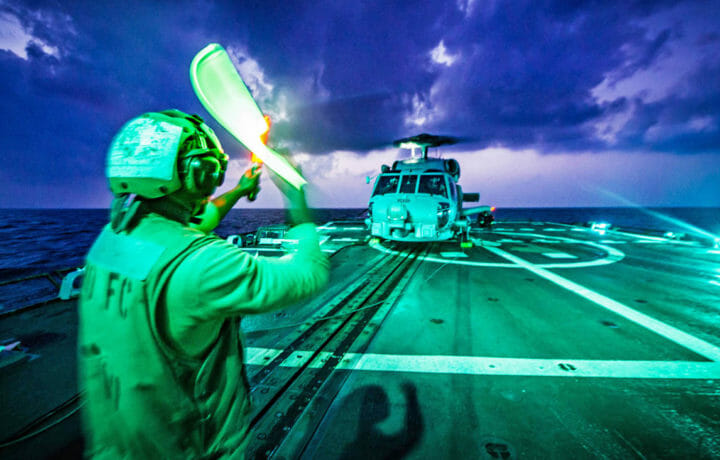One of the initiatives that came out of the Navy’s Education for Seapower report was increasing the emphasis across the board in the educating of sailors and Marines at all levels. In the report, it found that the best way for the Navy to prepare for a certain uncertain future is to develop the force intellectually and according to the needs of the Navy. As equipment becomes more advanced, the intelligence of operators will need to advance.
Education was a top priority for ex-Navy Secretary Richard Spencer. Before leaving his position he said, “Cultivating a culture for continued learning and professional development sharpens the naval force’s competitive advantage. The Department of the Navy must be a continual learning organization.”
In a recent interview with the Navy Times, Acting Secretary Modly supported Spencer’s vision, saying, “I think that the one thing that’s predictable about the future is that it’s going to be unpredictable. What that suggests to me, from a couple dimensions is that we really need to drive the intellectual development of our military people so that they’re able to deal with unpredictability. To me, that’s about focusing on education, teaching them how to think, teaching them how to think critically.”
One initiative that supports the new “continued learning and professional development” theme is the establishment of a Community College for enlisted sailors and Marines. Right now, they have the Tuition Assistance program, which permits sailors and Marines to take college courses with no out-of-pocket expense, but the Navy’s TA program ran out of money on May 28th and did not receive new funding until October 1st. In light of this and what the Seapower report found, it’s clear the Navy needs a more coordinated education effort that does a better job at not only supporting the educational needs of its enlisted sailor, but also supporting the intellectual needs of the Navy as a whole.
Once up and running (estimated to be sometime in 2021), the new Navy Community College will permit enlisted sailors and Marines to take courses at no expense that will lead to two-year associate degrees in the expected technological-heavy fields of computer science, data analytics, artificial intelligence, machine learning and even Naval history (aimed to build critical thinking, reading and writing skills) among others. As the needs of the Navy changes, degree fields offered by the community college will change too.
If students feel they need to take courses in other fields not on the Navy needs list for their own personal development or personal goals post-service, they can do so, but the cost of the courses will come out of their GI Bill benefits or out-of-pocket.
The new Navy Community College is part of an overall projected Navy University where Navy ROTC, Officer Candidate schools, the Naval Academy and education programs for staff and flag officers will all be part of an orchestrated education effort to better “integrate and align naval education to the need of the enterprise” at all levels. No longer will Navy education stay static or as leaders termed it in the report, “stagnant”.



